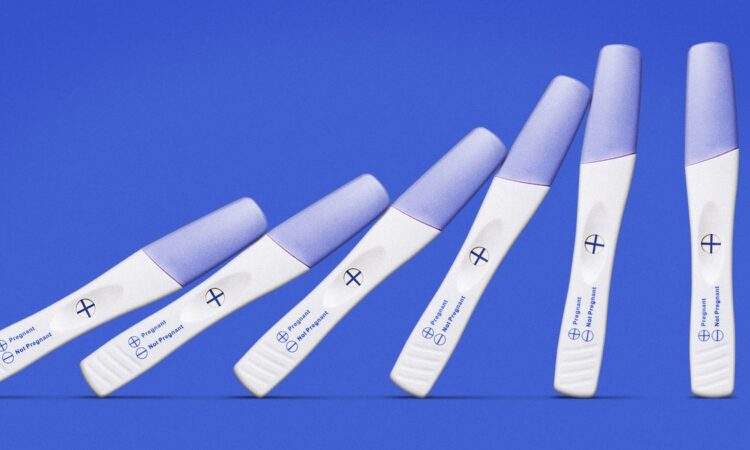
The number of babies born in England and Wales is at its lowest level in two decades, echoing a trend in the developed world and sparking fears of a “slow-motion crisis” for future generations.
Just over 600,000 children were born in 2022, according to the Office for National Statistics – down about 3% from 2021, the so-called Covid baby boom, and the lowest total since 2002. The country’s birth rate is now “lower than during the 1930s Great Depression and almost as low as it was during the First World War (when many men were away)”, said Vicky Spratt on the i news site.
Fears of a rapidly ageing population thanks to declining birth rates abound across Europe, as well as in South Korea, Japan, Canada and the US. The European picture in particular is “bleak”, said Polly Dunbar in The Daily Telegraph, with “ominous implications for economic growth as well as pensions, healthcare and social services”.
Sign up for The Week’s Free Newsletters
From our morning news briefing to a weekly Good News Newsletter, get the best of The Week delivered directly to your inbox.
From our morning news briefing to a weekly Good News Newsletter, get the best of The Week delivered directly to your inbox.
What the papers said
Falling birth rates are “one of the greatest crises facing western democracies”, said Sebastian Payne, director of UK think tank Onward, in The Times. “Many of our challenges in the years ahead will worsen if our birthrate is left to wither.”
Although it is an individual choice to have children, “woeful policymaking means the state is artificially stifling families”, said Payne.
Statutory paternity leave is only two weeks and the tax and benefit system penalises single parents. The UK also now boasts the second highest childcare costs among leading economies in the world, which has “been heaped on top of historically high rents and rising mortgage costs”, said the i news site’s Spratt.
Italy remains a worrying bellwether. Its census data, released last month, revealed that for every child under six, there are more than five people over 65: a “slow-motion crisis which has gradually reached critical mass”, said Dunbar.
So why the “silence” in the UK, asked Fraser Nelson in The Daily Telegraph. School rolls here are already “understood to be in terminal decline” because the UK’s fertility rate is 1.55 per woman, and 2.1 is required to sustain a population without immigration, but the topic is “barely discussed” in Westminster. Nelson pointed out that 60% of children in London have foreign-born mothers but fears of demographic decline are treated as a “dangerous conspiracy theory of the far right”.
Populists around the world, from France to Germany and the US, are increasingly embracing “natalism”, while online conspiracy theories of a “great replacement” abound. Elon Musk has repeatedly claimed that “population collapse” is the biggest problem the world will face in 20 years. Last week he warned the Netherlands’ far-right election winner Geert Wilders that the Dutch nation would “die out by its own hand” if its record low birth rate continued.
This has “bolstered the view that demographics is a pet subject for national populists” and the “swivel-eyed”, said Nelson. But if the past few years in Europe have taught us anything, it’s that populists “only thrive when important topics are kept off the agenda by established parties”.
What next?
At the current trajectory, the UK’s natural population will start to decline in 2025, the ONS has predicted – at which point there will be more deaths than births. Previous estimates had not anticipated this until 2043.
If this continues, “the already shrinking working age population would shrink even further”, Anthony Travers, professor at the London School of Economics, told the Financial Times, increasing pressure on public services. We will soon have a “pension crisis“, said Nelson, thanks to the Tory habit of “bribing the elderly” with triple lock pledges.
The “indisputable solution” is to build houses and reform renting, said Payne. There is a quicker solution, said The Guardian‘s Tobias Jones, but it is “politically problematic”: more migrants of working age to bolster the population and guarantee pension payments.
Ultimately, said Nelson, falling birth rates are a trend that “may well be beyond the limits of government control”. South Korean authorities have “sunk an almighty $200 billion into this since 2006, and succeeded only in beating its own record for the world’s lowest birth rate, year after year”. But if richer societies have lower birth rates because women have more options, “is this really such a bad thing?”






